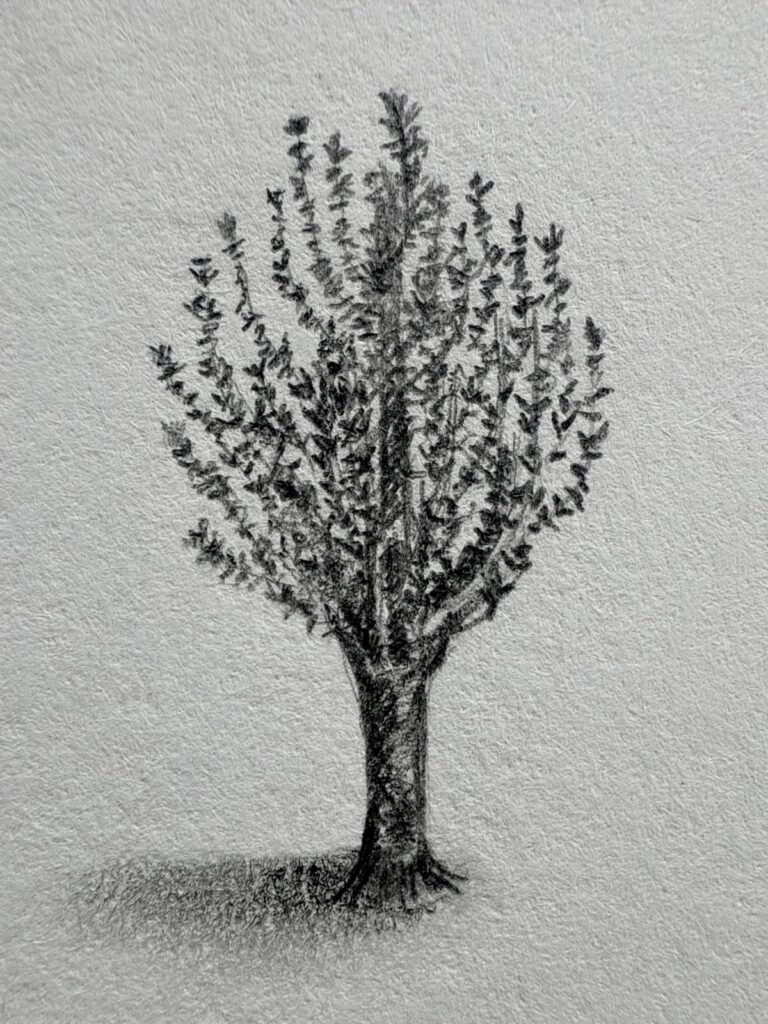
“I will extol you, my God and King, and bless your name forever and ever.”
Psalm 145:1 (ESV)
I think everyone should take the time to draw something. It’s a great way to get some perspective on things.
When you set out to draw something, it requires you to slow down and really examine a subject. I didn’t appreciate that fact at all until I started trying to draw. You have to look at the texture of it. You have to notice how the light hits it and where the shadows are falling. You have to take into consideration the background, the foreground, the perspective, all of the different values, and then translate it onto a two-dimensional piece of paper. I think that’s what makes a beautiful drawing so impressive: the ability to capture all that.
As I’ve been drawing more with my kids, and really getting to into pencil art, it’s also shown me a couple other things. The first is, I’m not that excellent at drawing (yet). The other is that, all around me, is the most incredible beauty, and I’m often far too busy to pay attention to it. Between the busyness of life with young kids, and a job that keeps me very busy, I’m realizing just how little time I take to stop and just appreciate the trees, the grass, the sky, the sunsets, and the amazing spectrum of color and shadow that God has brought forth for us all to behold and appreciate. When you actually try to capture on paper what God has created around us, you really get a better handle on just how amazing it all is.
He’s the master artist; truly. It’s all quite unbelievable to behold when you stop long enough to take it in.
What I’ve been reminded of especially, is exactly what David talked about in Psalm 19:
The heavens declare the glory of God, and the sky above proclaims his handiwork. Day to day pours out speech, and night to night reveals knowledge. There is no speech, nor are there words, whose voice is not heard. Their voice goes out through all the earth, and their words to the end of the world.
Psalm 19:1–4 (ESV)
As I sat on my front porch attempting to draw what I later learned was a Maple Tree, that scripture immediately came to my mind. The large park in front of my house, with rows of maples, tulip trees, shrubs, and large grassy area are speaking no words; but when the sun is coming down, and the evening light is bringing out out all the shadows and colors in a way that’s impossible to capture in words, you can most certainly hear that same voice. It’s a bit like being given the privilege to step in God’s studio, to gaze on what he’s created and allowed me to enjoy.
God never employs psychological tactics, manipulates our emotions, or overpowers our senses to get our attention.
It amazes me that in his sovereignty, and speaking to the experience for the majority of us, the God of the universe has ordained the most unintrusive means for showing us his glory. He’s given us his word, and he’s put his might and beauty on display in creation. While the world is eager to capture our attention with psychological tricks, the gracious God of the universe gives us a book and trees and flowers and ocean waves.
What a glorious God we have access to in Jesus, and what a beautiful creator he is. A God worthy of extoling, indeed.